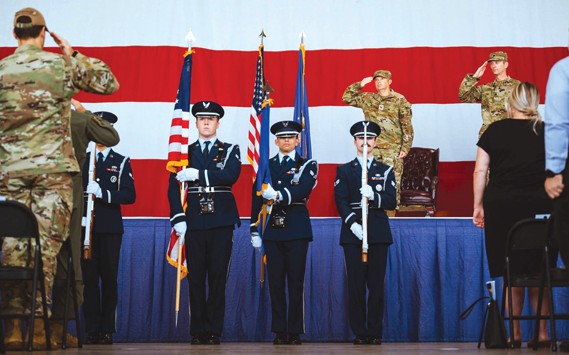Editor’s note: This was first published on Jan. 9, 2013,
THULE AIR BASE, Greenland — How many times have you heard a soccer, baseball or football coach tell his players to lean forward? In my experience, a good coach will always provide this advice.
You may wonder, what makes this advice so important in sports? Leaning forward enables the player to be in a position that allows him or her to anticipate an action and quickly react to a play. Coaches, regardless of sport, are communicating how important it is to maintain control of the play and ultimately control of the game.
Control enables the team to synchronize its plan in tempo and timing to be in a position to win. It starts with leaning forward, and it takes preparation. Before a player can effectively lean forward, he or she must know the rules of the game and must have the skill to create an opportunity to score or stop the opponent.
Similarly, in the military you also need to know the rules and know your job, while working to do both well. Leaning forward begins with understanding the rules or procedures captured in Air Force instructions, technical orders or operations manuals. Along with your training, these documents define the boundaries and best practices you can employ to accomplish a specific task. They are not all inclusive.
The better you know your job, the greater the number of options you have available to solve a given problem. Your success, and that of your team, therefore, is predicated on how hard you work at knowing your job.
Thomas Edison once said, “There is no substitute for hard work. I never did anything worth doing by accident, nor did any of my inventions come by accident; they came by work.”
In order to lean forward against today’s challenges, it is extremely important to become a skilled technician or subject matter expert in your functional area. There are several benefits to knowing your job well.
The whole team benefits when everyone possesses the tools necessary to solve any problem quickly and decisively, and even more importantly, when you know your job inside and out.
This shared knowledge also allows the team to communicate with one another and focus on the core issue of the problem. It helps the team understand the complexity of the problem and to identify resources required to accomplish the task at hand. It increases the team’s ability to lean forward and control the situation. Once the situation is under control, the team becomes efficient as it is able to effectively prioritize tasks and minimize wasted time.
Our operational environment is becoming more complicated and complex. When you become a subject matter expert, you will notice an increase in your confidence as you lead and motivate your team. It is that confidence that drives mission accomplishment and your team’s ability to adapt to any situation. Whether faced with numerous challenges or complexity driven by technology, it is important now more than ever to lean forward. Only then can you quickly adapt to the situation and succeed in our process driven world.
In the same fashion a coach tells his players to lean forward, the Air Force also needs you to lean forward. As leaders, it is your responsibility to maintain your technical expertise and create the environment for the team to succeed. Know the rules, know your job and work hard at being good at both. Lean forward and take control of the situation and lead the team to success. Remember, you are ready and you can make the difference.











